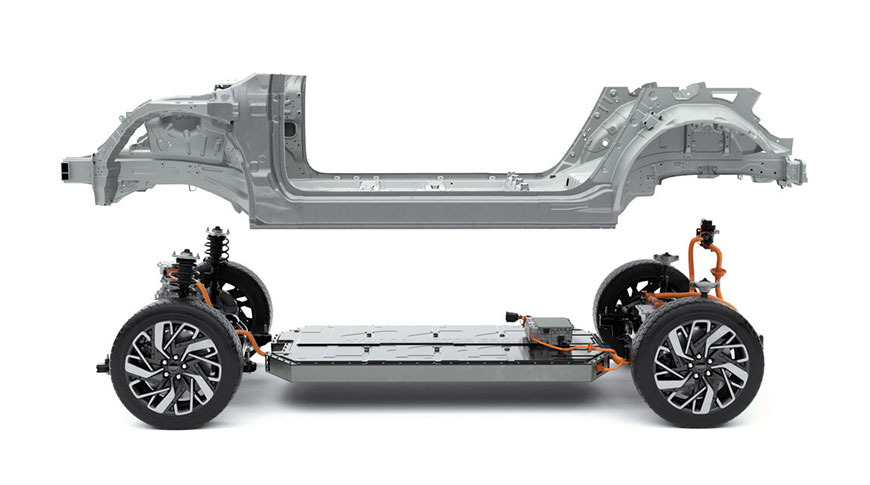A report on Wednesday claims Apple's first foray into the automotive industry will be a fully autonomous vehicle designed to operate without a human driver, suggesting it might not be marketed as a consumer product.
Citing sources familiar with Apple's plans, CNBC reports the first iteration of "Apple Car" will be be a good candidate for driverless food delivery businesses and companies operating robotaxis.
"The first Apple Cars will not be designed to have a driver," a source said. "These will be autonomous, electric vehicles designed to operate without a driver and focused on the last mile."
The suggestion upends current thinking about the much rumored car project. Industry watchers and pundits expect "Apple Car" to be a consumer product along the lines of Tesla's popular electric autos; a bold expansion into a completely new field. If CNBC's source is correct, Apple might first find its footing in enterprise before transitioning to personal mobility.
There is evidence that backs up the publication's claims. In 2019, Apple purchased self-driving shuttle and car kit startup Drive.ai, acquiring dozens of employees, cars and other assets to add to the ranks of its Project Titan autonomous vehicle development team. Prior to that, a report in 2018 said Apple signed a deal with Volkswagen to convert a number of T6 Transporter vans into autonomous shuttles for its Palo Alto to Infinite Loop (PAIL) pilot program.
Today's report echoes recent rumblings about a tie-up with Hyundai and Kia, saying Apple is close to reaching a manufacturing deal that will see branded electric vehicles assembled at Kia's U.S. facilities. Production is tentatively slated for 2024, though the timeline might be pushed back, according to sources. Apple might also tap other automakers to assist in the project separately or in cooperation with Hyundai.
Earlier in the day, South Korean news outlet Dong-A said Apple and Kia plan to sign a deal on Feb. 27 that will see the tech giant invest 4 trillion won to secure access to the automaker's U.S. plant in Georgia. That report also cited a 2024 start date and claimed initial capacity would be set at 100,000 cars per year with the potential to accelerate output to a maximum of 400,000 units a year.
On Tuesday, Apple analyst Ming-Chi Kuo predicted the so-called "Apple Car" will be built on Hyundai's E-GMP electric vehicle platform, with Hyundai Mobis offering assistance with component design and production. Kuo, like others, believes Kia's U.S. arm will handle production, with Apple in charge of self-driving hardware and software, semiconductors, battery technologies, form factor and user experience.
 Mikey Campbell
Mikey Campbell







-m.jpg)






 William Gallagher
William Gallagher
 Christine McKee
Christine McKee
 Marko Zivkovic
Marko Zivkovic
 Mike Wuerthele
Mike Wuerthele

 Amber Neely
Amber Neely
 Sponsored Content
Sponsored Content
 Wesley Hilliard
Wesley Hilliard









32 Comments
Here's my guess. If I get it wrong in three years you can make fun of me. If I get it right, you can still ridicule me. I think Apple with pursue a Car as Service strategy. In urban areas they will offer a 'membership/subscription' where you get a driverless vehicle for so many hours or so many miles a month. Higher cost gets you more access and faster response. Again, in urban areas this is a valuable and cost saving measure for consumers. Cars are a VERY inefficient use of money for those in urban areas where driving 45 miles to work isn't needed. In fact, I think in almost all cases they are an inefficient use of money. Anyway, Apple doesn't want to be Tesla. Not even Tesla wants to be Tesla anymore. There is no upside in selling cars to consumers. But a smart, forward looking, driverless service has potential when paired with a great brand, tied into your portable, wireless devices ETC. In San Francisco, New York, Boston, Los Angeles - this would make sense. I lived in one of those BIG cities and just finding's parking each night sucked not to mention driving to places and trying to valet or find parking. So that's my wild guess from 30,000 feet.
Everything about Apple iCar is coming together one piece at a time. But it seems Apple wants to build robotaxi kind autonomous transport service. That may very well be true but I like to buy Apple iCar like i buy iPhone. Apple let's have Tesla vs GM vs whoever vs Apple EV option for consumers.